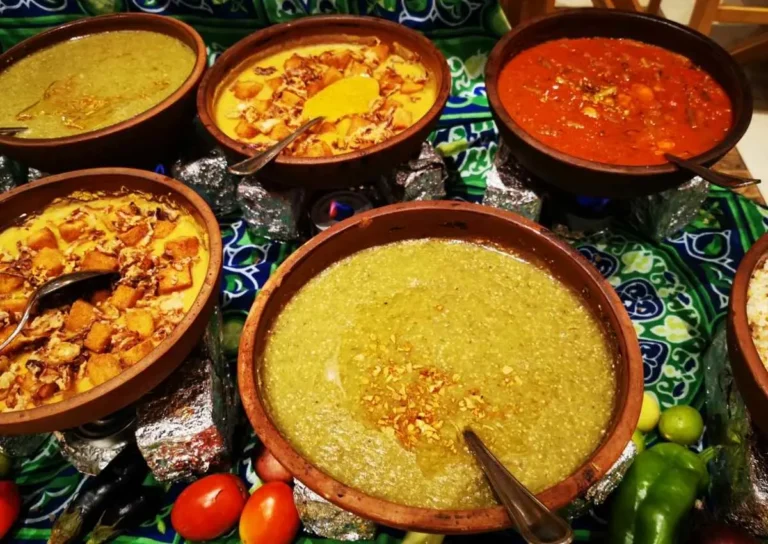Introduction: The Cultural Fusion of Egyptian Dishes
Egyptian cuisine is a reflection of the country’s rich cultural history. The food of Egypt has been shaped by a variety of cultures, from the ancient Egyptians who first inhabited the Nile River Valley, to the Greeks and Romans who conquered and ruled the region, to the Arabs who brought Islam and their culinary traditions to the country. Over time, these influences have blended together to create a unique and diverse cuisine that draws on a wide range of ingredients, flavors, and cooking techniques.
Ancient Egypt: A Culinary Heritage
The cuisine of ancient Egypt was based on a diet of bread, beer, and vegetables, with meat and fish being reserved for special occasions. Some of the dishes that are still popular in Egypt today, such as the savory fava bean dish ful medames and the sweet dessert basbousa, have their roots in ancient Egyptian cuisine. The use of spices and herbs like cumin, coriander, and dill was also a hallmark of ancient Egyptian cooking.
The Mediterranean Influence on Egyptian Cuisine
The Mediterranean region has had a significant influence on Egyptian cuisine, particularly through the Greek and Roman empires. The Greeks introduced new ingredients like olives and cheese, while the Romans brought with them their sophisticated culinary traditions. Today, dishes like koushari, a hearty vegetarian dish made with pasta, rice, and lentils, reflect the Mediterranean influence on Egyptian cuisine.
Arab Contributions to Egyptian Cooking
The Arab influence on Egyptian cuisine is perhaps the strongest of all. With the arrival of Islam in the 7th century, Arab cooking techniques and ingredients were introduced to the country. One of the most important contributions was the use of spices like cinnamon, cloves, and cardamom, which are used in many Egyptian dishes today. Other Arab-inspired dishes include the hearty stew called fatta and the popular street food of ful medames.
Spices and Flavorings in Egyptian Dishes
Spices and flavorings play a central role in Egyptian cuisine. In addition to the spices introduced by the Arabs, Egyptian cuisine also uses a variety of herbs like parsley, mint, and cilantro to add flavor and depth to dishes. Other flavorings like garlic, lemon juice, and vinegar are also commonly used. One of the most popular spice blends in Egyptian cooking is baharat, a mix of cinnamon, cumin, coriander, and other spices.
The Influence of Islamic Cuisine on Egypt
With the arrival of Islam in Egypt, the country’s culinary traditions were further shaped by the Islamic dietary laws. Pork and alcohol were forbidden, and the use of halal meat became the norm. Additionally, Islamic cuisine introduced new dishes like kushari, a hearty mix of rice, lentils, and macaroni, and shakshuka, a breakfast dish made with eggs and tomatoes.
The Role of Trade in Shaping Egyptian Food
Egypt’s geographic location at the crossroads of Africa, the Middle East, and the Mediterranean has made it a hub of trade for centuries. As a result, Egyptian cuisine has been influenced by a wide range of ingredients and flavors from around the world. In particular, the spice trade played a crucial role in shaping Egyptian cuisine, with spices like cinnamon, pepper, and ginger coming from as far away as India and Indonesia.
Conclusion: A Mosaic of Flavors in Egyptian Fare
The cuisine of Egypt is a rich and diverse tapestry of flavors and ingredients that reflect the country’s long and complex history. From the ancient Egyptians to the Greeks and Romans, from the Arabs to the Islamic world, and from the spice trade to modern-day globalization, Egyptian cuisine has been shaped by a multitude of influences. Despite this diversity, however, Egyptian cuisine remains distinctive and uniquely its own, a testament to the country’s rich culinary heritage.

